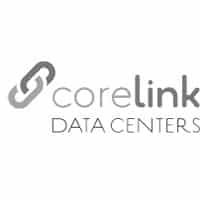Today it is not uncommon for data centers, computer rooms, and control facilities to employ an entirely reactive maintenance regimen. At Titan Power, we know that fixing something that isn’t broken can be a difficult sell for companies and facilities managers in any industry. Still, for data centers and related facilities, simply waiting for problems to unfold can be a damaging strategy.
Preventative maintenance may seem like an unnecessary luxury, but in reality, it represents the best possible use of assets. Reactive maintenance introduces unnecessary costs and risks that no business needs to face. Over time, an insistence on reactive maintenance can cost a facility resources and opportunities.
Why Focus on Prevention?
In a comparison of preventative and reactive maintenance, preventative maintenance holds all of the advantages. When you employ this type of maintenance effectively, you will notice tangible gains in your business and operations, including:
- Reduced maintenance costs. Preventative maintenance is almost always more cost-effective than reactive maintenance, which often involves fixing multiple problems that arose from one initial problem. When you factor in the cost of hiring emergency help or placing rush orders, the potential for cutting expenses through preventative maintenance is even greater.
- Lower overall operating costs. Preventative maintenance can keep your equipment running at peak efficiency, reducing energy usage and associated expenses. Proper maintenance will also extend the lifespan of many of your systems, from generators to blowers. This allows you to save money upfront and long-term.
- A safer work environment. Equipment malfunctions or failures can create safety hazards that threaten even the most well-trained staff. Although some incidents simply cannot be foreseen, preventative maintenance can address safety risks associated with wear and tear, improper device use, and inadequate safety settings. Preventing work-related accidents, in turn, can improve productivity and reduce your insurance costs.
- A better reputation. Equipment problems that result in downtime or data loss can be costly for any computer room, data center, or similar facility. Winning back client confidence or finding new business after these issues occur can be difficult. Preventative maintenance makes it easier for your business to deliver on its promises, keeping your current client base happy.
Making the shift from reactive to preventative maintenance can be difficult, especially for businesses that are operating on tight budgets or struggling to keep up with current maintenance needs. However, allocating more resources for preventative maintenance, planning ahead for scheduled downtime or repairs, and promoting a culture of prevention can go a long way toward making your business more profitable and successful.
Simple but Effective Starting Points
What areas should you focus on to reduce your need for reactive repairs? It is often easiest to enroll in maintenance programs from established companies or contractors. These programs usually involve regular inspections of key facility systems and components, such as uninterruptible power sources, generators, automatic transfer switches, and HVAC or CRAC systems. During these inspections, experts can identify necessary maintenance based on observed performance issues and manufacturer-recommended maintenance schedules.
Batteries are one of the system components that are worth focusing on during preventative maintenance. Many facility managers are surprised to learn that batteries are a top contributor to system downtime and power loss. Without high-quality, operational batteries, your entire uninterruptible power source or generator can fail. Alarmingly, just one old or bad battery can wreak havoc on a system. Besides scheduling inspections, you may want to partner with specialists who can offer advice on choosing the most reliable replacement batteries.
The Power of Preventative Tests
After your batteries and other system components are in top working order, system testing is a smart next step. Performance testing ensures that the whole system functions as you would expect it to, given the condition of the individual components. Some tests worth considering are:
- Load bank testing. This ensures that backup generators can produce and maintain their stated power capacity for a minimum of two hours. This testing cleans the generator out and combats functional issues associated with generator underuse. Most facilities should have this testing done annually.
- Facility rollover testing. This is a broad test to verify that all backup equipment functions as needed following a power failure. This assessment measures how quickly and effectively emergency systems take over supplying power. Annual testing is the bare minimum; for some facilities, more frequent testing is beneficial.
- UPS acceptance testing. This checks whether your uninterruptible power supply meets manufacturer performance specifications. The tests may involve electrical, mechanical, and load assessments. This testing should be performed within a few days of equipment installation to establish a baseline, and it can be done subsequently as part of a regular maintenance package.
- Infrared thermography. This measures infrared energy to detect electrical components with abnormal temperatures and a potentially high risk of failure. Infrared thermography can be an effective way to identify various issues, including excessive or uneven loading, loose connections, or short circuits. We offer this service as needed but recommend it as part of normal maintenance.
Although regular inspections and maintenance are often enough to prevent equipment or system issues, these tests can help reveal any overlooked work that may be critical now or in the near future.
Making the Switch to Prevention
Performing the right maintenance and repairs at the right time can help you save money, time, and stress. Responding to problems as they arise, meanwhile, can leave your business vulnerable to financial loss, poor solutions, and disruption. At Titan Power, we have years of experience identifying and heading off potential problems, and we are ready to help you tap into the many benefits of preventative maintenance. To learn more about our maintenance programs or schedule an inspection, call us today at 800-509-6170.



























